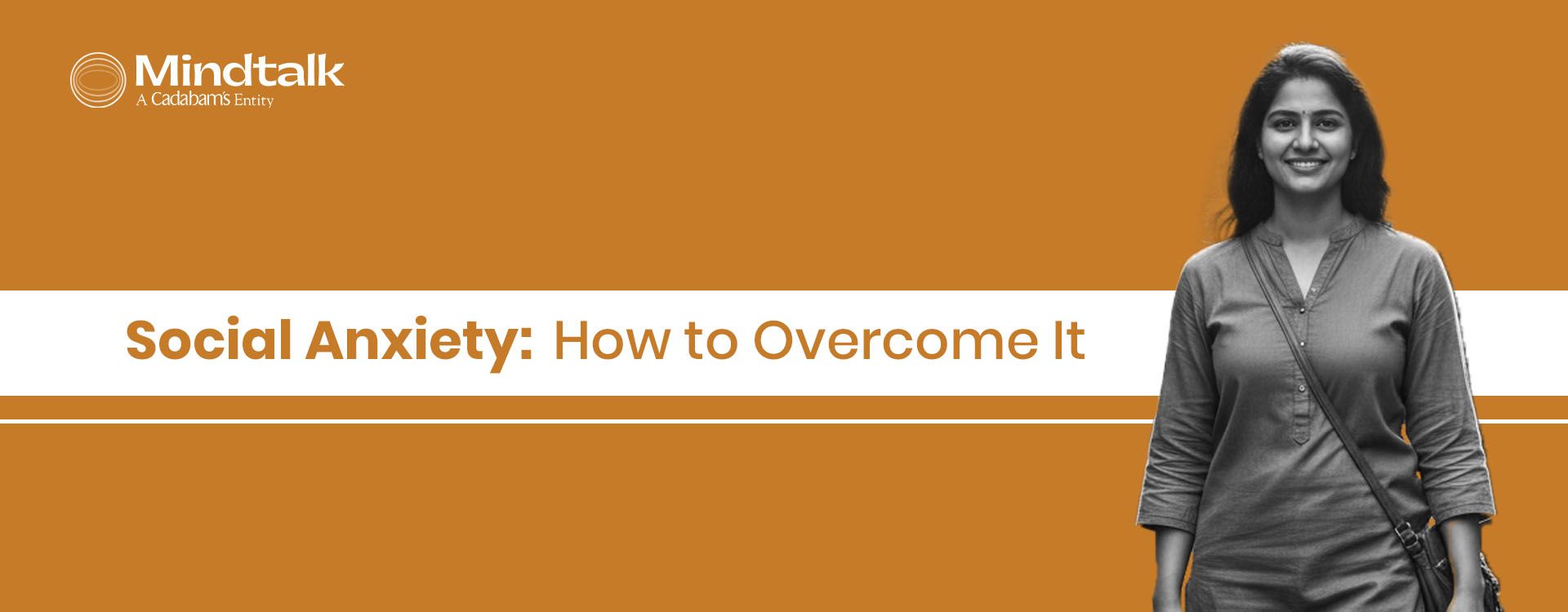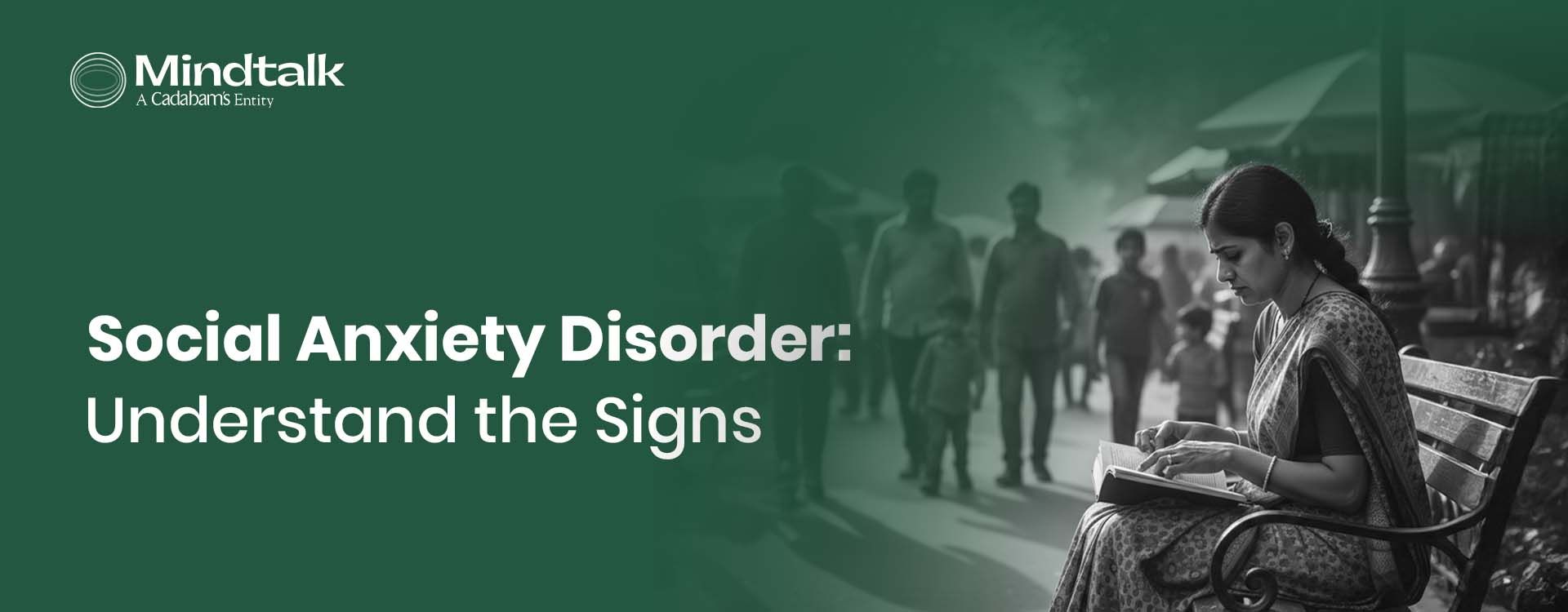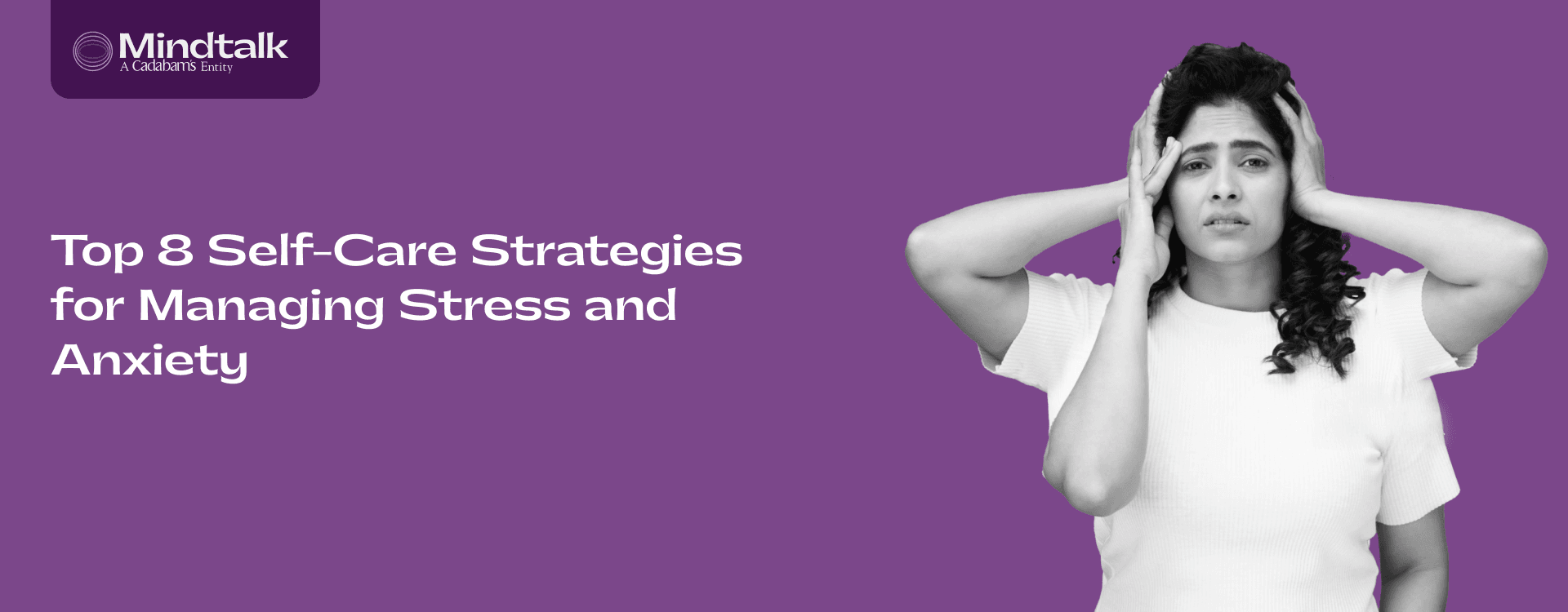Anxiety Attack Symptoms: What to Watch for and How to Cope
Anxiety attacks may be frightening and unsettling, frequently appearing with physical and emotional symptoms. Learning to identify these signs may assist a person in realising they are having an anxiety attack and act appropriately to cope with it. This article explores anxiety attack symptoms, their causes, and effective coping strategies for long-term relief. Mindtalk, a leading mental health brand, offers innovative resources designed to empower individuals in managing anxiety and building resilience for a healthier mind. People often confuse anxiety vs panic attack symptoms, but recognising the unique signs of each is crucial for accurate management.
What Is an Anxiety Attack?
An anxiety attack is an intense episode of fear or distress that develops suddenly, often in response to stress or a perceived threat. Unlike general anxiety, these attacks produce a range of physical and emotional symptoms that can be debilitating. Identifying the early symptoms of anxiety attack can help individuals implement strategies to regain control and prevent escalation.
Common Symptoms of Anxiety Attacks
Anxiety attacks show different symptoms, such as physical discomfort and emotional distress, that can vary in intensity from individual to individual.
Physical Symptoms
Anxiety attacks produce physiological responses that are similar to life-threatening medical conditions, and these can intensify fear. Determining the anxiety attack physical symptoms can help individuals understand their anxiety and take steps to minimise discomfort.
Increased Heart Rate or Palpitations
Typical symptoms of anxiety attacks include a speeding heart, skipped beats, or a fluttering chest. This occurs as a result of the body anticipating a threat and activating its "fight or flight" response. Although unsettling, these are usually harmless and can be overcome with breathing exercises.
Shortness of Breath or Hyperventilation
Breathing turns shallow and laboured during an anxiety attack and tends to bring on dizziness and tightness in the chest. The feeling is frightening but it is a natural reaction to excess stress. Managing symptoms of anxiety and panic attacks involves taking slow, deep breaths, which helps to stabilise oxygen levels and recapture a feeling of calm.
Muscle Tension and Body Aches
Protracted anxiety produces stiffening of muscles, leading to aching of the body and pain. Necks, shoulders, and back muscles tense during episodes. Stretching, relaxation of muscles progressively, and exercise ease tension and lighten symptom intensity. Recognising anxiety vs panic attack symptoms helps differentiate between simple muscle tension and other medical emergencies.
Dizziness or Light-headedness
Dizziness is a frequent symptom of anxiety and panic attacks. The dizziness comes from hyperventilation and elevated adrenaline levels. It can be kept under control by sitting down, concentrating on slow breathing, and grounding exercises until the attack passes.
Sweating or Chills
Sudden perspiring or having a chill is the physiological symptom of anxiety attack. These symptoms are caused by hormonal surges and heart racing. Clothing that is loose-fitting and relaxation methods can help to regulate body temperature during an attack.
Emotional and Psychological Symptoms
Social anxiety panic attack symptoms also have psychological components that cause emotional distress and impairment of thought processes. Many individuals who endure anxiety attack symptoms in females would allow individuals to implement coping measures for better anxiety management.
Feelings of Overwhelming Fear
A strong feeling of doom or impending harm is characteristic of anxiety attacks. Such feelings occur even when there is no actual threat. Mindfulness skills and cognitive restructuring can assist one in challenging irrational fears and gaining mastery over one's emotions.
Persistent Worry or Dread
Overexaggeration of worry and fear can perpetuate symptoms of anxiety attack at night. Worrying about losing control, embarrassment, or failure can escalate symptoms. Practising mindfulness and reframing anxious thoughts can help reduce anticipatory anxiety and prevent attacks from escalating.
Difficulty Concentrating or Confusion
Racing thoughts and mental fog make it difficult to focus during an anxiety attack. As a part of the broader anxiety attack physical symptoms, cCognitive overload can lead to confusion and indecision. Grounding techniques, such as the 5-4-3-2-1 method, can help redirect attention and restore mental clarity.
Irritability and Restlessness
Symptoms of anxiety attack at night can increase anxiety generally leading to irritability and restlessness. Restlessness arises from an excessive amount of nervous energy. Moving the body about, walking, or stretching relieves distress while directing nervous energy in a helpful manner.
Sense of Detachment or Derealisation
Certain people dissociate from their surroundings or themselves during attacks of anxiety. This can be disorienting but is only a brief response to tension. Using sensory grounding techniques, such as stroking textured surfaces, can focus one's mind again in the moment.
Factors That Intensify Anxiety Attack Symptoms
Various factors can worsen anxiety attack symptoms, making them more frequent or severe. Identifying these triggers can help individuals manage their condition better.
The Role of Stress in Triggering Symptoms
High stress levels contribute significantly to anxiety attacks. Significant life transitions, interpersonal disputes, and work-related stress may increase vulnerability. Deep breathing and relaxation are two stress-reduction strategies that can improve mental health in general and reduce the frequency of anxiety attacks.
Lifestyle Habits That Can Worsen Symptoms
Inadequate sleep, poor diet, and excessive consumption of alcohol or caffeine can aggravate symptoms of anxiety. Emotional stability and reduced frequency of the occurrence of anxiety attacks can be promoted through the adoption of a healthy lifestyle with a balanced diet, proper rest, and physical exercise, which, can help prevent the symptoms of anxiety attack at night.
Environmental Triggers of Anxiety Attacks
Loud noises, crowded spaces, and social situations can act as triggers for anxiety attacks. One way to reduce discomfort in triggering situations is to identify personal triggers and create coping mechanisms, such as using noise-cancelling headphones or gradual exposure therapy.
Causes and Triggers of Anxiety Attacks
Anxiety attacks may be caused by a combination of genetics, environmental, and psychological stressors. Physical and emotional trauma, chronic stress, drug abuse, and even certain medical conditions are common reasons. Being aware of these causes enables one to regulate and avoid attacks from taking place.
Anxiety Attacks vs. Panic Attacks
While anxiety and panic attacks are often used interchangeably, they differ in intensity and onset:
- Anxiety attacks build gradually, whereas panic attacks occur suddenly.
- Panic attacks reach their peak intensity within minutes, while anxiety can persist longer.
- Panic attacks often appear without a clear trigger, whereas anxiety attacks typically arise due to stressors.
While both are distressing, understanding the distinctions between anxiety vs panic attack symptoms helps tailor coping strategies.
Long-Term Effects of Untreated Anxiety Attacks
Ignoring the symptoms of an anxiety attack can result in long-term physical and mental health issues that impact everyday living and general well-being.
Physical Health Implications
Recurring attacks of anxiety may result in increased blood pressure, heart disease, gastrointestinal disorders, and compromised immune function. Stress over an extended period of time puts an excessive burden on the body, predisposing individuals to long-term threats to health that reduce life expectancy and overall quality of life.
Increased Risk of Co-occurring Disorders
Anxiety attacks, depression, substance abuse, and post-traumatic stress disorder (PTSD) often co-occur. Without therapy, these conditions may worsen. To stop mental health problems from getting worse, it is imperative to get professional help as soon as possible.
Chronic Impact on Quality of Life
Symptoms of recurrent anxiety attacks might interfere with social interactions, productivity at work, and relationships. Most people also experience low productivity, lack of motivation, and isolation, which have a big impact on their general satisfaction and capacity to function well in day-to-day activities.
Treatment Options for Anxiety Attacks
Therapy, medication, and lifestyle modifications are effective ways to alleviate anxiety attack symptoms and enhance long-term mental and physical health.
Cognitive Behavioural Therapy (CBT) for Anxiety
Cognitive behavioural therapy (CBT) is a popular treatment that assists people in addressing negative thought patterns that contribute to the symptoms of anxiety attacks. People can better control their anxiety reactions and avoid more attacks by learning coping mechanisms, behavioural tactics, and relaxation techniques during guided treatment sessions.
Medication for Managing Anxiety Attacks
Physicians might prescribe anti-anxiety drugs like selective serotonin reuptake inhibitors (SSRIs), benzodiazepines, or beta-blockers to treat the symptoms. While medication is often helpful, in many cases, it works best when used together with therapy and lifestyle changes in order to achieve the long-term resolution of anxiety attack symptoms.
Mindfulness and Relaxation Techniques
Stress can be decreased, and the physical symptoms of an anxiety attack can be avoided by engaging in mindfulness, meditation, and breathing techniques. People can regain control over their emotional reactions and develop resistance against anxiety triggers by using techniques like progressive muscle relaxation and guided imagery.
Lifestyle Adjustments to Reduce Anxiety Triggers
Taking up a healthy lifestyle with daily exercise, a balanced diet, and adequate sleep can go a long way in anxiety management. Cutting down on caffeine and alcohol consumption, keeping social contacts alive, and doing recreational activities are also factors of emotional well-being and aid in the alleviation of anxiety attack symptoms in both females and males.
Support Groups and Peer Networks
Sharing with others who have social anxiety panic attack symptoms can give emotional support and mutual coping mechanisms. Support groups, either online or face-to-face, offer a sense of belonging, reducing feelings of isolation and making individuals feel understood.
When to Seek Professional Help for Anxiety Attacks
It's critical to get professional help if symptoms of an anxiety episode interfere with day-to-day functioning. An underlying problem that calls for counselling, treatment, or medication may be indicated by persistent anxiety. Early intervention can enhance general emotional health and prevent more issues.
Common Misconceptions About Anxiety Attack Symptoms
The signs of anxiety and panic attacks are often confused, which breeds stigma and false information. The following are some typical misunderstandings:
Anxiety Attacks Are Just Stressful Moments
Anxiety attacks differ from regular stress. They are severe physical and emotional sensations that can paralyse. Anxiety attacks, in contrast to momentary stress, can develop into long-term mental illnesses if untreated and need to be addressed through professional help as well as positive coping strategies. Recognising anxiety attack symptoms in females is crucial, as they can lead to intense physical and emotional distress.
Everyone Experiences the Same Symptoms
Anxiety attacks vary greatly from person to person. While some may experience anxiety attack physical symptoms like dizziness or shortness of breath, others may have emotional symptoms such as intrusive thoughts or extreme worry. Understanding individual differences is key to effective diagnosis and treatment.
Physical Symptoms of Anxiety Are Harmless
Although symptoms of anxiety and panic attacks may not be life-threatening, chronic anxiety can have severe long-term health effects, including high blood pressure, heart issues, and digestive disorders. Seeking treatment ensures that physical symptoms are managed before they escalate into more severe conditions.
Building Resilience Against Anxiety Attack Symptoms
Becoming resilient with coping skills for emotions and building routine structure assists in symptom reduction of anxiety attacks and general well-being.
Strengthening Emotional Coping Skills
Developing self-knowledge, writing journals, and seeing a therapist assist one in being able to control one's own emotions. Fostering optimism and doing exercises in gratitude are able to move the attention from anxiety towards beneficial thinking habits and diminish the intensity and frequency of symptoms of an anxiety attack.
Developing a Routine to Minimise Triggers
Emotional stability can be achieved by establishing a daily routine that includes time for self-care, which can help reduce the intensity of anxiety attack symptoms in females. Predictability minimises the physical symptoms of anxiety attacks by reducing uncertainty, a primary anxiety trigger, and giving people a sense of control.
Setting Boundaries to Manage Anxiety-Inducing Situations
Learning to say no, avoiding toxic environments, and prioritising mental health help individuals set healthy boundaries. Establishing personal space and time to recharge can prevent emotional exhaustion and reduce susceptibility to social anxiety panic attack symptoms.
Overcoming Anxiety Attacks with Support from Mindtalk
Mindtalk offers professional therapy, support groups, and personalised treatment plans to help individuals regain control over anxiety attack symptoms. Our expert-led cognitive-behavioural programs, mindfulness training, and holistic interventions provide long-term solutions.
Seeking help at Mindtalk ensures that individuals receive effective tools to manage symptoms of anxiety and panic attacks, improve emotional well-being, and lead fulfilling lives. Taking the first step towards therapy can be life-changing in managing anxiety.
If you're seeking solutions for emotional and mental well-being, Mindtalk’s therapists are here to help. Our platform offers comprehensive mental health services, including counselling, therapy, and psychiatric care, provided by specialised experts. With a focus on evidence-based and holistic approaches, we support your path to personal growth and healing. Reach out to us today to book a therapy session. Call us at +91 73534 00999. Take the first step toward a headache-free, stress-free life!
Mental Health Professional for Anxiety



